30+ SAMPLE Podcast Proposal
-
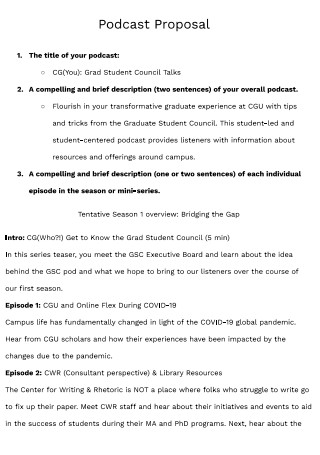
Podcast Proposal
download now -
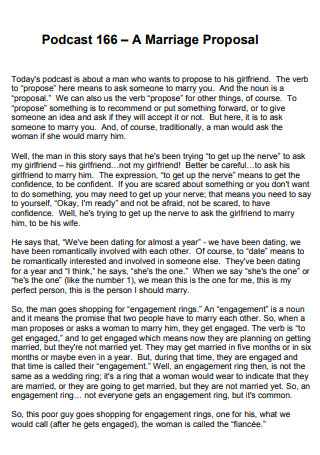
Podcast Marriage Proposal
download now -
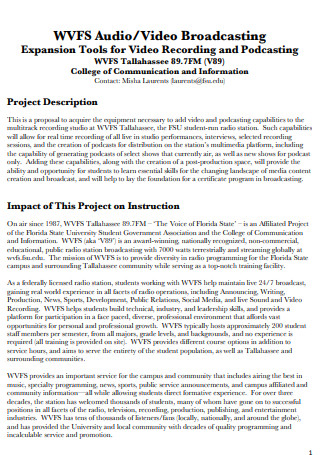
Podcasting Video Proposal
download now -
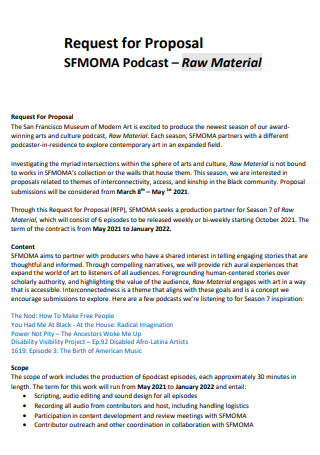
Podcast Raw Material Proposal
download now -
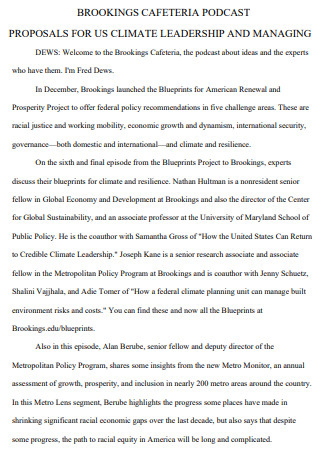
Cafeteria Podcast Proposal
download now -
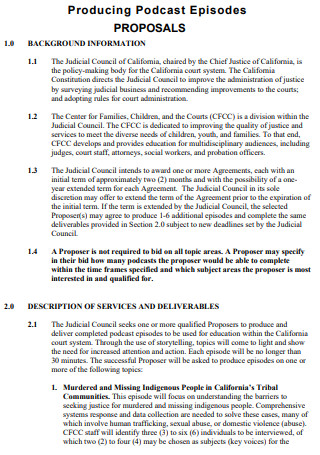
Producing Podcast Episodes Proposal
download now -
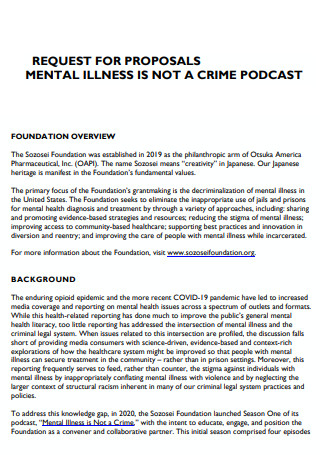
Crime Podcast Proposal
download now -
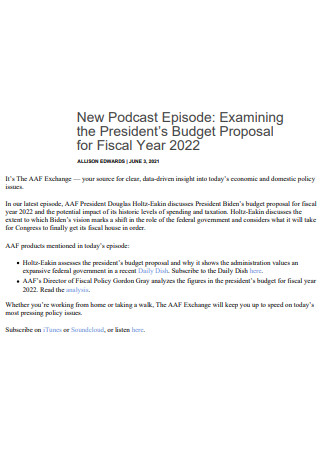
New Podcast Budget Proposal
download now -
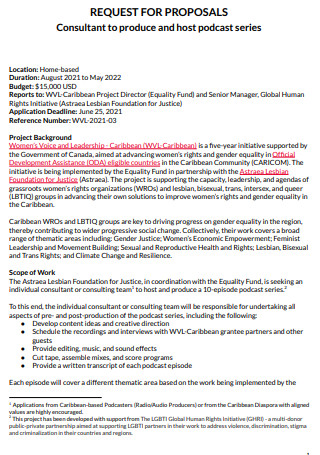
Host Podcast Series Proposal
download now -
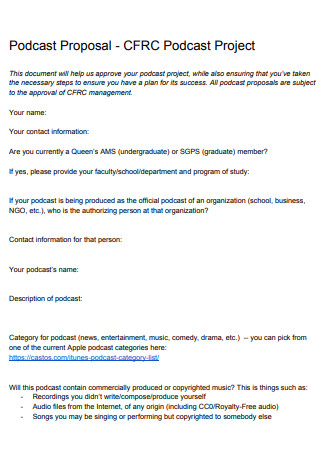
Podcast Project Proposal
download now -
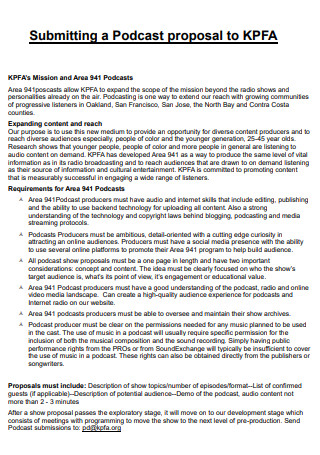
Submitting a Podcast Proposal
download now -
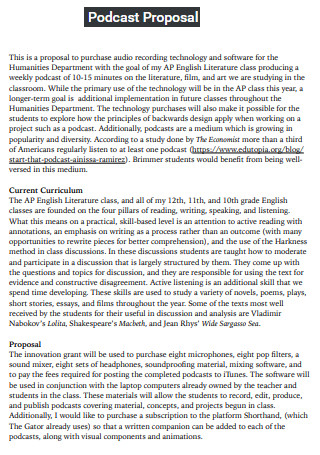
Sample Podcast Proposal
download now -
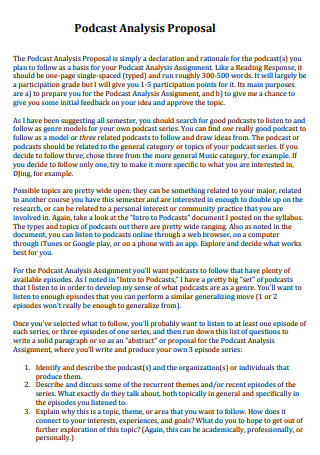
Podcast Analysis Proposal
download now -
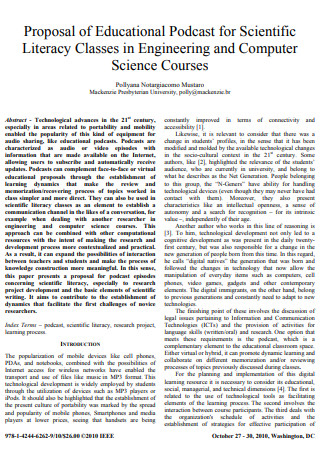
Educational Podcast Proposal
download now -

Podcasting History Proposal
download now -
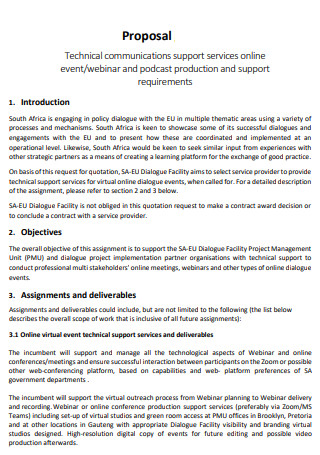
Podcast Production Proposal
download now -

Virtual Podcast Proposal
download now -

Medical Fund Podcast Proposal
download now -
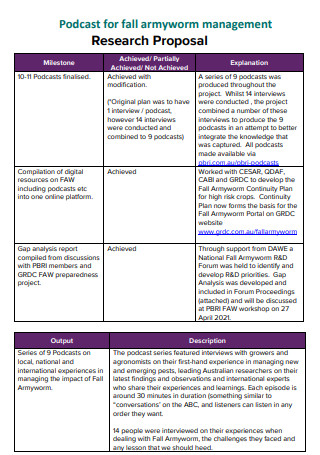
Armyworm Management Podcast Proposal
download now -
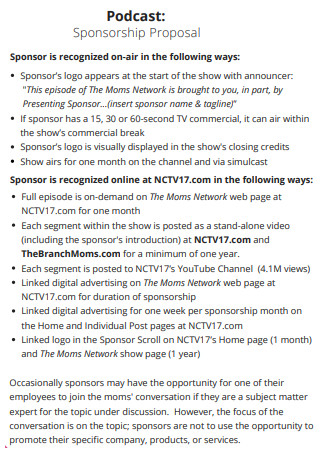
Sponsorship Podcast Proposal
download now -
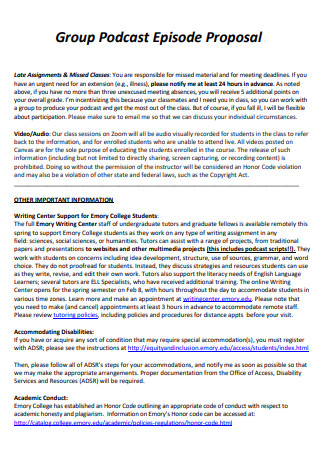
Group Podcast Episode Proposal
download now -
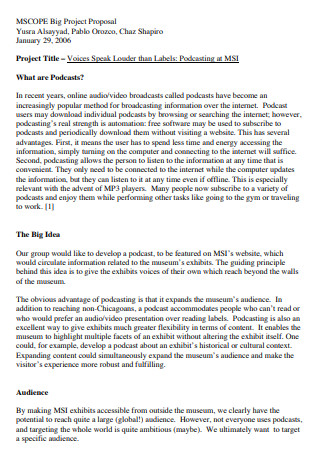
Podcast Big Projects Proposal
download now -
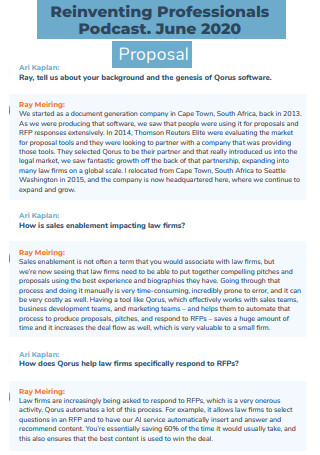
Professionals Podcast Proposal
download now -
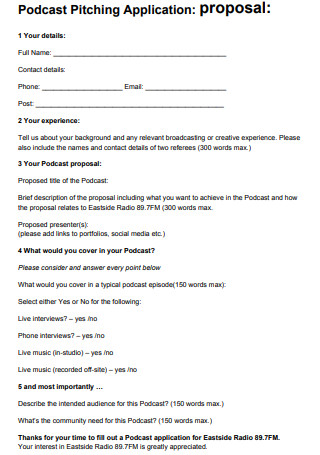
Podcast Pitching Proposal
download now -
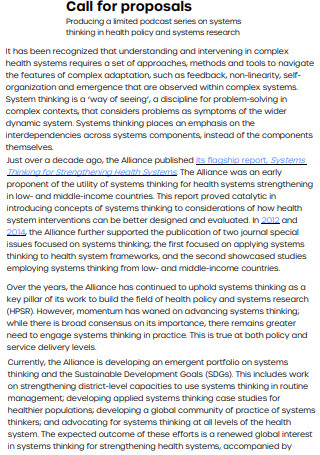
Podcast Call For Proposal
download now -
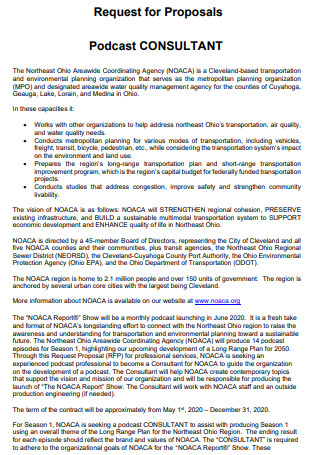
Podcast Request for Proposal
download now -

University Podcast Proposal
download now -
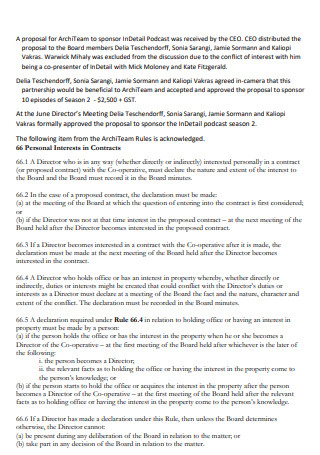
Podcast Proposal Format
download now -
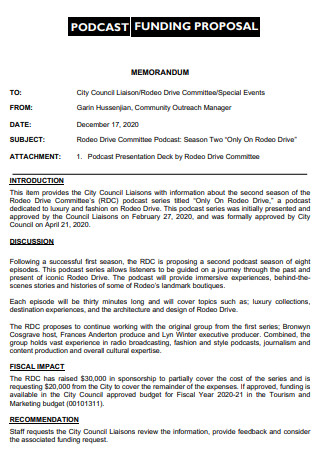
Podcast Funding Proposal
download now -
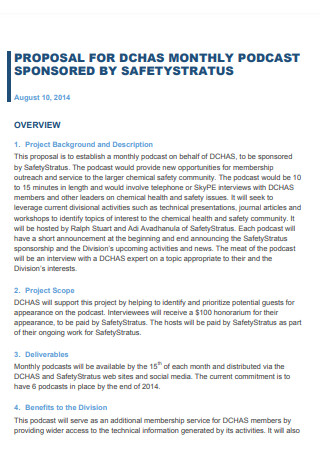
Monthly Podcast Proposal
download now -
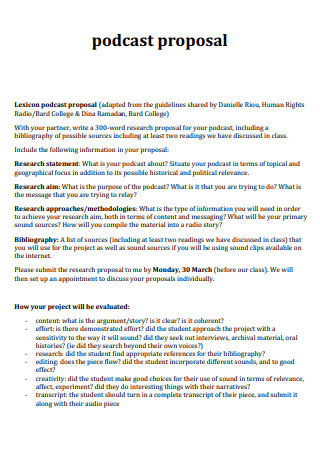
Basic Podcast Proposal
download now
What Is a Podcast Proposal?
A podcast proposal is a written document that contains information about a request to create a podcast centered on a specific genre or topic. A podcast proposal is a formal document that organizations or businesses are required to create. Most importantly if they are being sponsored or plan to make a small profit from it. The podcast proposal provides background information about both the project and the entity behind it. It defines its goals and what it hopes to accomplish through hosting podcasts.
Different Kinds of Podcast Format
It’s fascinating to see how many different subjects can be explored in a podcast. From the informative to the weird and strange. Perhaps it was the attraction to secrets and puzzles. Some podcasts available on the internet are just discussions between fans about their favorite book and author. Alternatively, educational talks that cover a wide range of topics. It satisfies curiosity while providing vital information. And, in most cases, the folks who click and listen are the ones who desire the information. What kinds of podcasts are there, you might wonder? Well, let’s just get to it below.
Steps On How to Make a Podcast Proposal
When it comes to journalism and research, a podcast is in its own category. It is usually free. And everyone enjoys what they are doing on their own accord. It’s educational and entertaining, with funny commentary. The host of a podcast delivers website links dedicated to their topic. And most hosts simply enjoy discussing topics that interest them. That alone makes it a great thing from the start. Are you stumped as to where to begin? Why not start by learning how to write a podcast proposal?
-
1. Pick a Relevant Topic
A podcast can be started by a variety of organizations, such as a charity that assists physically challenged individuals, to distribute accurate information. Their podcast would revolve upon providing out vital facts regarding a sickness or an illness. Or possibly how to deal with being diagnosed with it. As a result, it is their subject and the focus of the majority of conversation. Choosing a theme should be based on your interests. Because podcasts are episodic, it’s preferable to choose a topic that can lead to further discourse. Not only do you want the podcast to achieve prominence, but you also want it to continue as a host or organization. Since some podcasts generate money through advertisements that are introduced during the session.
-
2. Introduce the Project Background
It’s best to explain what the podcast proposal is all about in the proposal. Or how the topic arose. It is possible to accomplish this by providing a brief background on the project itself. And how it ties to the organization’s objectives and aims. This can also be maintained by providing an overview of the organization producing the podcast. When creating a business podcast proposal, it is important to consider both the goal and the context.
-
3. Agendas and Episodes
Each episode can be a continuation of the one before it. It could also be a completely distinct issue within the same field. Creating an agenda would aid in determining how each episode would proceed. The pilot and the first several episodes, in particular. Agendas would also aid in determining what research materials are required. Or what kind of content should be included in each episode. Agendas would also assist the host in determining how to speak and deliver information. Alternatively, start conversations and ask the proper questions.
-
4. Hosts and Guests
A proposal implies that a host for the podcast has already been identified. It should be stated in the paper what qualifications the host has or should have. The type of factor effect they would bring to the table as the host. The same is true for guests. Especially if the podcast is already planning to run for a prolonged period of time. Guests would have to be invited on occasion. And it makes no difference what format the podcasts are in. Guests contribute to the dialogue and the creation of a diversified environment. Guests can also put an end to an argument. It is also crucial to include a list of potential guests in the proposal. If that is not achievable, ideal qualifications for invited guests.
-
5. Dates, Podcast Frequency and Format
Podcasts can take the shape of a talk show, a debate, or an interview. This should be specified and agreed upon in the podcast proposal. The setting for the podcast is determined by the format. There are also other factors to consider, such as the frequency with which podcasts will be released. Some podcasts are only released once or twice a week. Some people could do it every day. And, in the case of a podcast with a higher financial expectation, frequency should be within the budget. Dates such as the pilot’s release or the development podcast should also be specified.
FAQS
Is a Podcast Streamed Live?
Before being released, podcasts are recorded and edited. However, some people do hold live podcasts, especially if they are between fans. But, unlike streaming and radio, podcasts frequently focus on the host and their topic. It’s more of a dialogue than a request for other people’s opinions. Because of this, most podcasts are not broadcast live.
Why Is a Podcast Proposal Necessary?
A podcast proposal sponsored by a company or group requires a more official podcast proposal. This is since there are more financial concerns involved. And then it turns into a business. And business need a document that will assist in navigating all financial and operational issues. In this case, a podcast proposal is essential.
Are Podcasts Popular?
According to a study conducted by stastista, the number of podcast listeners in the United States surpassed 75 million by 2018. Which may easily fall under the category of “popular.” A podcast is a sort of entertainment that is very similar to its other media counterpart. Comedy is one of its most popular genres. Podcasts are also frequently encouraged and embraced in the gaming and book communities.
Podcasts are incredibly entertaining to listen and make. It’s highly educational and creates a space for fair dialogue to happen. The internet is rife with podcast proposal examples that could serve as a starting point. Alternatively, you can look at the templates above for a podcast production proposal!
